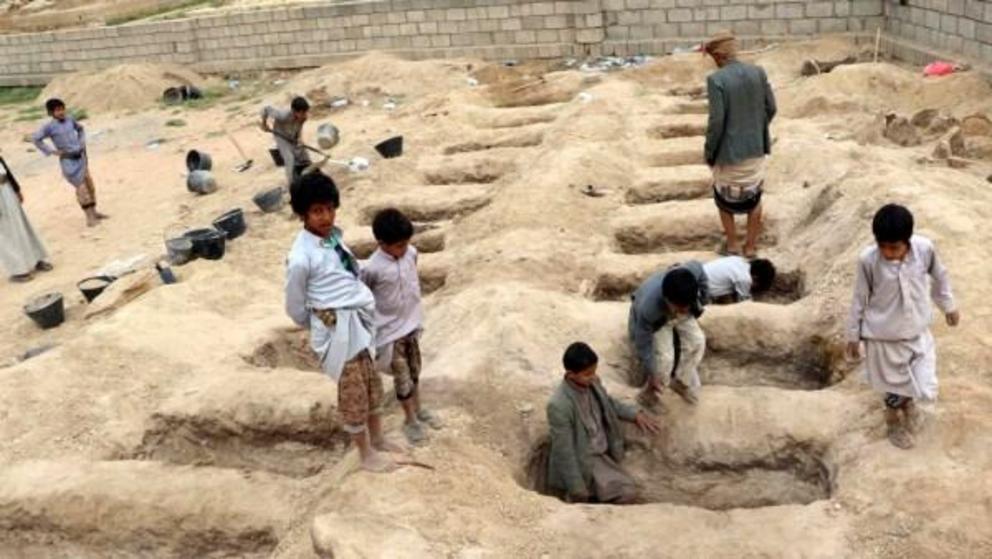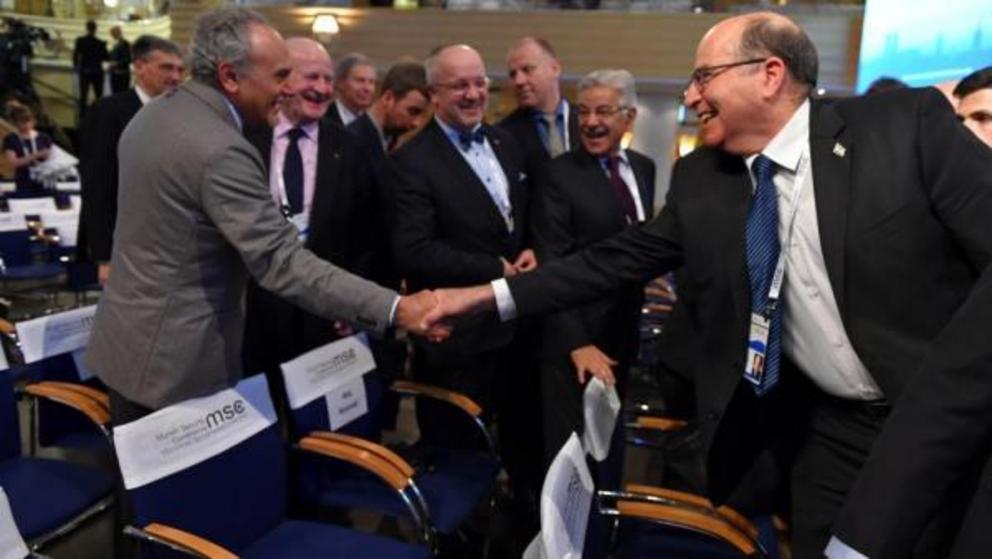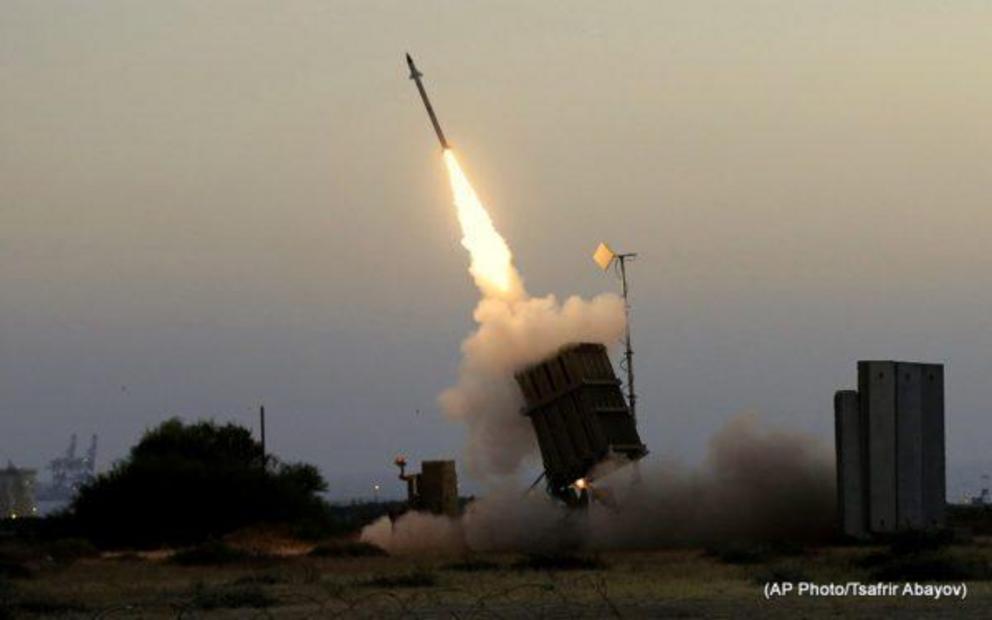Reports of new Israel-Saudi arms deal
... amid Yemen bloodbath and Riyadh’s fears
Israel and Saudi Arabia have no official diplomatic ties. Yet last year Israeli military chief of staff Lt. Gen. Gadi Eizenkot gave a shocking interview to a Saudi newspaper, in which he strongly advocated an Israeli-Saudi alliance versus Iran and its alleged “assets” in the Middle East.
TEL AVIV, ISRAEL – Israel issued a denial Thursday of a report that it inked a deal to sell the Iron Dome missile defense system to the Kingdom of Saudi Arabia, after reports of such a deal in Arabic-language news media citing unnamed high-level diplomatic sources spread across the world press.
The denial comes as the Saudis continue to spend billions on weaponry since locking itself into a quagmire in its war of aggression on Yemen, where it has led a coalition against the Ansarullah popular forces, or Houthi movement since 2015.
It also comes as the Saudi regime, under the leadership of King Salman bin Abdulaziz Al Saud and Crown Prince Mohammed bin Salman, continues to be roiled by the effects of its cruel war on Yemen and its increasingly open relationship with Tel Aviv.
In a report on the deal, which was allegedly worth upwards of tens of millions of dollars, United Arab Emirates-based al-Khaleej newspaper cited officials who claimed that the sale would potentially be the first of many, pending the successful operation of the system along the Saudi border with Yemen, where multiple projectiles and ballistic missiles have been launched by popular forces toward military targets in Saudi-controlled territory.
The newspaper claimed the deal was a result of “the continued rapprochement between Saudi Arabia and Israel in recent months.”
The Iron Dome system, which was unveiled in 2011 during the Israeli assaults on the Gaza Strip, was developed and is manufactured by Israel Aerospace Industries and the state-owned Rafael Advanced Defense Systems military contractor, and has enjoyed heavy investment by the United States. The system is jointly manufactured in the two countries by both Rafael and flagship war contractor Raytheon, and has been touted as a possible solution to the U.S. military’s need for a compact air defense system capable of rapidly intercepting short-range rockets, missiles and mortar shells.
The Israelis had originally vowed not to sell the system to neighboring Arab countries, given Tel Aviv’s long-term “interests in the region,” according to the report. U.S. officials’ persistent demands at a “secret tripartite meetings that took place in Washington” eventually compelled Tel Aviv to complete the deal, sources added.
Rafael spokesperson Amit Zimmer roundly rejected the report Thursday, telling The Times of Israel that “the report is not true.” In another statement, the Israeli Defense Ministry said: “We deny the existence of an agreement to sell the Iron Dome system to Saudi Arabia.”
Yemen fights back
Since 2015, the Saudi kingdom has led a ruinous war titled Operation Decisive Storm on the Yemeni nation in a bid to foist a puppet regime on the neighboring country and to crush the Ansarullah movement, which it accuses of being an armed proxy of Iran.
MintPress News has exclusively reported on the dire extent of the humanitarian crisis resulting from the war, in which tens of thousands of preventable deaths through infectious disease and chronic illness continue to extract a horrific toll on the suffering people of Yemen.

Young boys inspect graves prepared for victims of Saudi Arabia’s airstrike on a school bus in Saada province, Yemen, August 10, 2018. Naif Rahma | Reuters
Owing to the unflagging morale and popular support of Yemeni troops and their Houthi allies, however, the Saudis and their junior partners have failed to make headway and have instead sunk into the quicksand of a prolonged occupation effort.
In the meantime, the Saudis have complained that they have been targeted by over 190 missile attacks launched from Yemen, which have mainly targeted military positions in southern Saudi Arabia. Riyadh and Washington have also frequently attempted to blame Iran for having armed resistance fighters.
Citing the alleged “Iranian threat,” Riyadh has clamored for newer and more advanced forms of military aid and imports from Western countries while citing its lack of progress in the war as proof of the alleged lethality of Tehran’s aid to allies.
As a result of Saudi Arabia’s fear of Iran and Tehran’s alleged “proxies” in Bahrain, Iraq, Lebanon, Syria and Yemen, Riyadh has also sought to make common cause with Israel and the extreme pro-Zionist administration of U.S. President Donald Trump.
The KSA-Israel alliance continues to develop
While the veracity of the reports on Tel Aviv’s sale of the Iron Dome to Riyadh is still unclear, it remains certain that the Saudi kingdom is continuing its dealings with the Israeli settler-colonial state and pursuing its historic alliance shift.
Israel and Saudi Arabia have no official diplomatic ties. Yet last year Israeli military chief of staff Lt. Gen. Gadi Eizenkot gave a shocking interview to a Saudi newspaper, in which he strongly advocated an Israeli-Saudi alliance versus Iran and its alleged “assets” in the Middle East through the sharing of classified intelligence and other means. The senior official said:
The Iranian plan is to control the Middle East by means of two Shi’ite crescents, the first being from Iran to Lebanon and the second across the [Persian] Gulf to the Red Sea. We must stop that from happening. This is what should be prevented in the region. In this matter there is complete agreement between us and Saudi Arabia.”
Eizenkot added that the election of Trump and the new anti-Iranian mood in Washington have created a rare opportunity for new alliances in the Middle East.

Israeli Defense Minister Yaalon shakes hands with former Saudi intelligence chief, Turki al-Faisal. Ariel Harmoni | Israel Defense Ministry
Saudi heir-apparent and Crown Prince, Mohammed bin Salman, has also sharply veered from the official position that Israel not be recognized until it withdraws from lands occupied in 1967, telling The Atlantic in April “the Jewish people have a right to a nation-state in at least part of their ancestral homeland” — a claim tantamount to a recognition of Zionist claims to a “right of return” to the land they claim they were driven from during biblical times. The Saudi royal added:
I believe that each people, anywhere, has a right to live in their peaceful nation. I believe the Palestinians and the Israelis have the right to have their own land.”
Such messaging, as well as the behind-the-scenes dealings between Tel Aviv and Arab capitals, led Israeli Prime Minister Benjamin Netanyahu to claim last month that “many Arab countries now see Israel not as their enemy but as their indispensable ally.”

